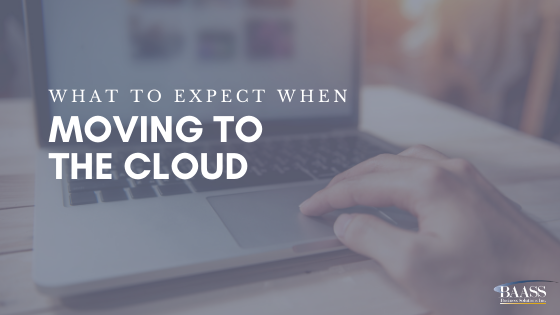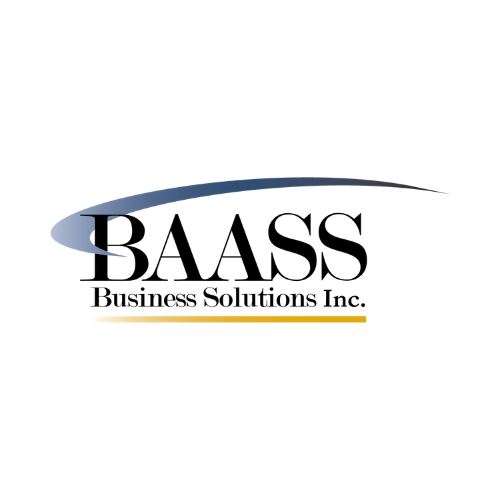
The lustre of the cloud is compelling, but when it comes to the day-to-day, what should companies expect when it comes time to implement a cloud migration? Are the other departments outside of finance left in the dust? What’s the workload like?We understand that companies who are prepared for growth have many questions about what to expect from moving to the cloud. Consider our advice when you’re thinking about the lift and shift of your company’s data and we will break down the benefits of cloud computing.
First, we need to understand the different types of cloud services, there are a few options to consider before cloud adoption.
Types of Clouds
Public Clouds
Common types of public cloud storage that you're probably familiar with are services like Google Docs, which saves your data along with that of thousands of other users in a data center, and social media platforms that allow you to upload video, documents, and pictures along with your posts.
Private Clouds
Private clouds are cloud systems unique to a particular company. Many large companies are setting up private clouds so that users from around their company can access cloud-based systems, but no one from the outside can. Private cloud usage grew from 22% to 31% last year.
Hybrid Cloud System
A hybrid cloud system uses a mixture of private, on-premises cloud solutions and public clouds to create a unique computing environment for a company. Hybrid clouds are becoming more common as companies seek the best solutions for their needs.
An example of a hybrid cloud is BAASS Cloud or Amazon Web Services (AWS). While most applications can run in the cloud, some need to remain on-premises or in a specific location due to low latency, local data processing, or data residency requirements. With hybrid cloud infrastructure, you can use the same infrastructure, services, APIs, and tools wherever you need it – from the cloud, to on-premises, and to the edge.
All options have their benefits and by working with cloud environment experts, we can help you determine which type of cloud service would be the best if for your data and your unique business requirements.
Want to learn more about the three types of cloud services, public cloud, private cloud and hybrid cloud? Make sure to follow up with Three Surprising Types of Clouds - for Cloud Computing.
WORKDAY PRODUCTIVITY
Leaving behind on-premises software with limited capabilities, clever workarounds and too many spreadsheets to move data to the cloud sound freeing, and it is. Their users are not only pleasantly surprised at the changes they see in their data performance, but in their workday productivity as well.
Now teams get all their information in real-time from anywhere, on just a phone, laptop or tablet. Travellers can travel light. The sales team has quick, accurate answers, and decision-makers can be 100% productive at 6 AM, or 10 pm – whatever the time, from wherever they are working.
Work environments go from a strained, limited user interface, to a flexible, productivity-based platform that works with everyone in your company, and their schedules, rather than against them.
SECURITY
Businesses accustomed to in-house IT and security measures are also used to fluctuating costs, and a wealth of headaches, ranging from software updates to security breaches and power failures.
In addition to worrying over network performance issues, these companies have to constantly consider the hazards that accompany remote sign-on, user permissions, and fluctuating costs associated with fluctuating conditions.
When these companies turn to the cloud, their IT and security concerns drop dramatically, and they feel free to focus on their expertise.
A strong cloud-based accounting solution like Sage Intacct combines powerful IT expertise with iron-clad security excellence. For instance, Sage Intacct offers:
- Fortune-100-class data centers to protect critical information.
- 24/7/365 redundant and armed-guard system security with continuous backups.
- Scheduled behind-the-scenes client system updates, with strong 3rd party verification and highly customizable user permissions.
- 99.9% uptime.
The right best-in-class cloud system, in short, can meet and exceed what many companies can do themselves. Further, these companies see their IT and Security costs level out when they move to the cloud, because their IT and security costs are built into their subscriptions, and as a result, are scheduled and predictable.
Read More: Cloud Security Myths Debunked!
DISASTER RECOVERY
It is essential for organizations to be well prepared for all types of disasters, whether in the form of hardware failures, cyberattacks or even natural disasters.
Ensuring the business continuity of a company in the event of a disaster is dependent, to a major extent, on its ability to replicate the systems and data.
What Is a Cloud Migration Strategy?
A cloud migration strategy is a plan an organization makes to move its data and applications from on-premises architecture to the cloud.
MIGRATION
Your exact roadmap for migrating to the cloud depends on the size and complexity of your environment. Here are some of the basic steps:
- Planning your migration: Before getting started, you should be clear on your reasons for the move and which strategy can best support them.
- Choosing your cloud environment: With the clarity of what you need you are ready to decide what kind of cloud model you want to adopt.
- Migration Plan: Planned accurately, your actual migration should be smooth sailing.
Validating post-move success: You cannot declare a cloud migration successful without evidence that it works as expected.
If your company’s current software and piles of spreadsheets are lagging behind in performance as your company grows, we can help. A strong and versatile software as a service (Saas) solution such as Sage Intacct is a true cloud financial software.
Learn how Cloud Technology Helps Your Company Overcome Challenges
Talk to us to find out how we can make a move to the cloud an exciting, productive and freeing experience for everyone on your team.
